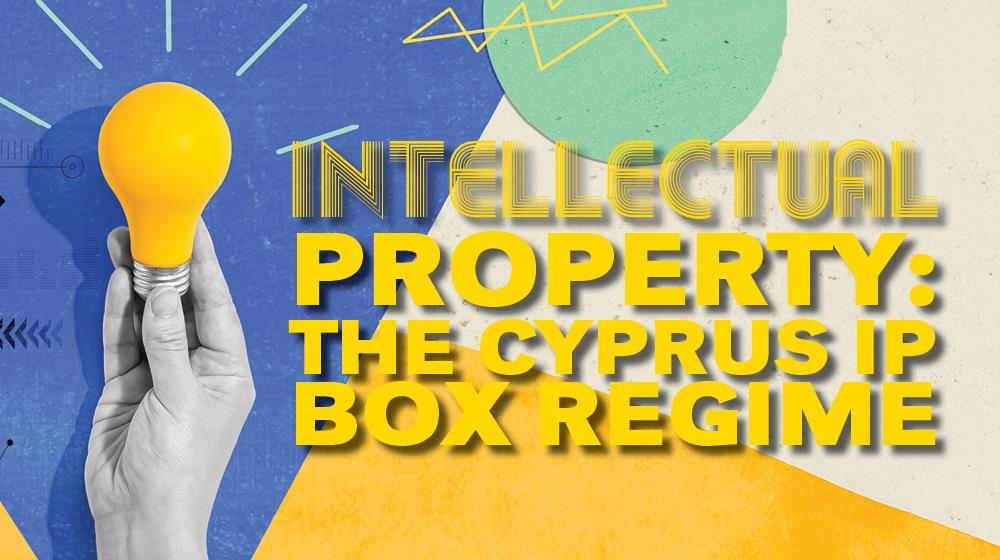It’s no surprise that Cyprus offers one of the most attractive tax-incentive frameworks for intellectual property (IP) rights. Updated in 2016 to align with international standards, the Cyprus IP Box provides an 80% exemption on qualifying IP income, resulting in an effective tax rate of just 2.5%. That’s a sweet deal for innovative and tech-driven companies. Combined with other incentives, this regime has proved especially attractive to international businesses – particularly fintech firms and video game studios – helping them reduce costs and channel more resources into R&D and product development.
However, what qualifies as IP might soon change.
In October 2024, thousands of artists, including Björn Ulvaeus of ABBA, Nobel Prize-winning novelist Kazuo Ishiguro and actor Julianne Moore, signed a petition against companies like OpenAI and Anthropic, accusing them of using their copyrighted works to train large language models (LLMs). It was a high-profile salvo in the increasingly fierce battle over intellectual property in the age of Generative AI. Moral panics over technology are nothing new. Once upon a time, composers considered pianos a scourge while publishers derided the photocopier as their worst nightmare. But Generative AI has rewritten the rules of engagement: it doesn’t just duplicate – it generates, often in ways that not even its creators fully understand. As Anthropic CEO Dario Amodei bluntly put it in a recent essay on his website, “People outside the field are often surprised and alarmed to learn that we do not understand how our own AI creations work.” These systems aren’t so much built as they are grown – their inner workings are emergent rather than engineered. An AI-generated song, for example, will pull fragments from countless works in its training data to produce a recombinant composition. But the exact creative choices it makes remain largely opaque. This so-called “black box problem” complicates more than just ethics – it muddies the legal waters. Courts, then, must wrestle not only with the content of AI-generated outputs but also the inscrutability of the process itself. This uncertainty undermines the foundations of traditional IP frameworks, which depend on clear authorship, intent and traceable creative effort. And when machines remix at scale, without consent or credit, they rattle the two pillars of IP: incentivising innovation and protecting the individual creator. Indeed, a 2023 paper published on SSRN, a repository for research, suggests that self-employed creatives, from writers to illustrators and beyond, have seen their income fall since ChatGPT was released in November 2022.
One issue is whether using copyrighted material to train AI models is an infringement at all. Lawmakers are still grappling with whether and how to allow text and data mining of IP-protected works, all while weathering fierce opposition from rights holders. AI companies argue that their tools fall under the ‘fair use’ doctrine, which permits limited use of protected works for purposes like criticism, commentary, news reporting or scholarship. Plaintiffs must also prove that an AI’s output is not just derivative but substantially similar to a protected work – a high bar when dealing with opaque algorithms and probabilistic processes.
The legal complications don’t end there. If IP law is built around human authorship, what happens when human input is minimal or non-existent? The US Copyright Office has drawn a clear line: no human, no protection. EU courts have taken a similar stance. In a notable Czech case, the Municipal Court of Prague ruled that an AI-generated image lacked human authorship and thus could not be copyrighted. As more works emerge from machines, this principle – no person, no property – will be tested further. What’s clear is that courts, policymakers and industry players will have to rethink the rules. The legal scaffolding of intellectual property wasn’t built for models that learn by ingestion and grow to make unpredictable decisions and the IP regimes of tomorrow must reflect this new reality. The next five years will surely bring fundamental shifts in how IP is created, protected and monetised.
In June 2023, the EU launched the Unitary Patent, a long-awaited simplification that provides uniform protection across participating member states via a single EPO-granted patent. It replaces the burdensome and costly need for multiple national validations. While Cyprus has signed the Agreement on a Unified Patent Court (UPC), which underpins this system, it has yet to ratify it. As of August 2024, only 18 EU states had done so. When the country does join, it is expected to fall within the South-East regional division of the UPC, though the timeline remains unclear. As Cyprus continues to compete for foreign investment in a rapidly evolving geopolitical landscape, scaling its IP strategy will be crucial to
stake its claim in the next frontier of digital creation.









